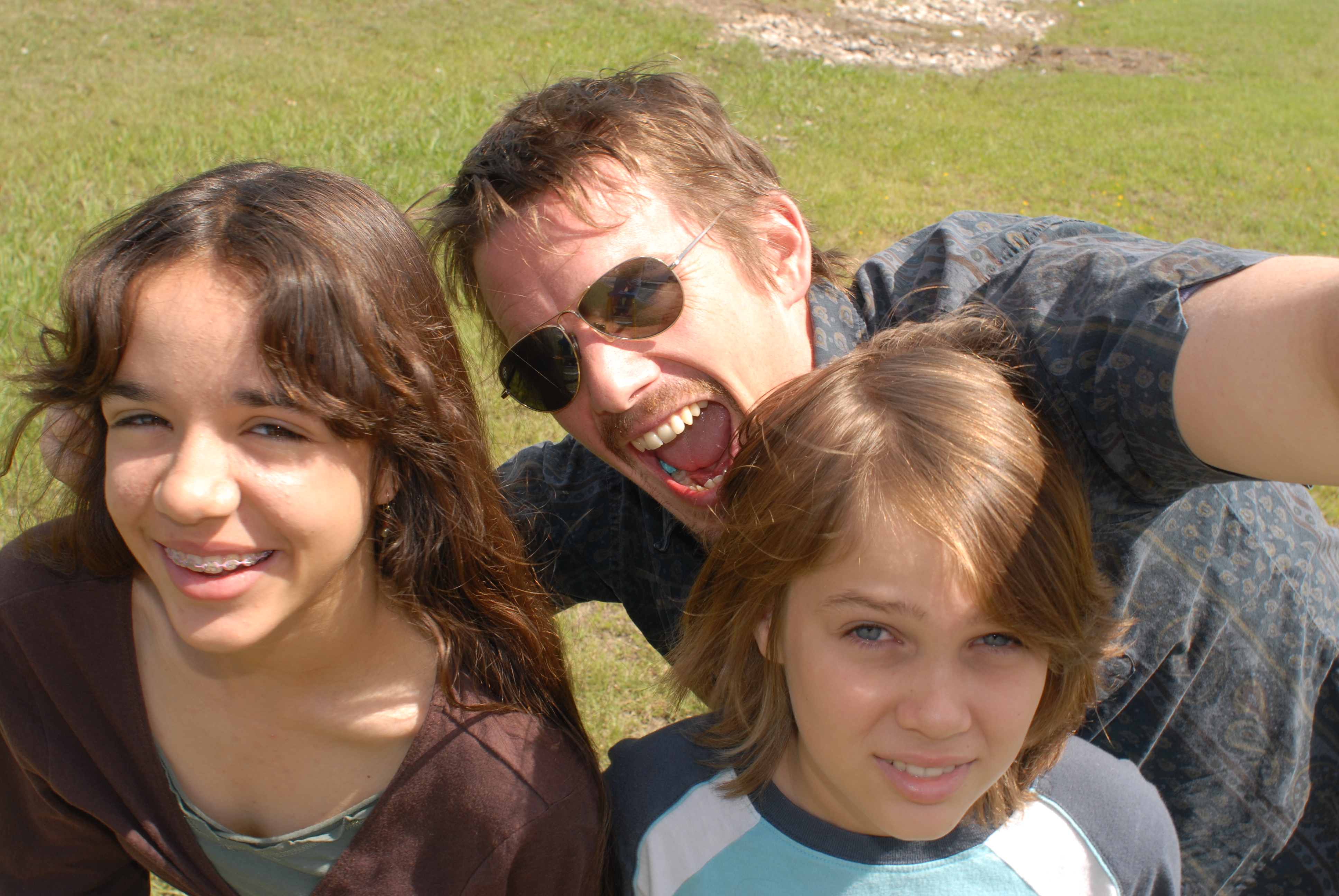The title Boyhood suggests something definitive, perhaps even a statement on the essential nature of growing up. Which is not at all what this movie is. Made up of stray moments, occasional bits of melodrama, and a gentle sense of time drifting by, the film is much better represented by its working title: 12 Years. Nothing grand about that, just a description of the awkward age of life. (Writer/director Richard Linklater decided to go with Boyhood after 12 Years a Slave came into the world.)
12 Years would’ve also been shorthand for the film’s making. It was shot in the director’s native Texas in short bursts over a 12-year period—Linklater knew the shape of the film, but would tweak its script as time marched on, incorporating topical issues and reacting to his performers. This means that unlike most movies, which remake the world and impose an order on it, Boyhood reacts to the world; as 21st-century history and its actors’ personalities evolve, the movie is changed by those things. This isn’t just an interesting experiment, but a philosophical position: Protagonist Mason (Ellar Coltrane), tracked from first grade to high-school graduation, is learning that life does not fit into the pleasing rise and fall of a three-act structure, but is doled out in unpredictable fits and starts.
So what’s it about? (Other than about 164 minutes—the length is crucial, and almost unnoticed.) We meet Mason daydreaming in a backyard, his parents having recently separated; the broken marriage will linger as a fact of life. His journey through the school years is sometimes bumpy, sometimes mundane. Linklater doesn’t reject melodrama so much as politely declines it, opting instead for little grace notes and revealing encounters. Patricia Arquette and Ethan Hawke are terrific as the parents, and Linklater’s daughter Lorelei is distinctive as Mason’s older sister. Other folks come and go, like people do. Nothing alerts us to the fact that another year has passed, unless we notice changes in haircuts. As we reach the final stages, there’s definitely a sense of rounding off the story, and a few appropriate nods toward lessons learned—the movie’s not as shapeless as it might seem.
Still, it’s quietly radical. Linklater’s films are almost always nudging us to watch movies in a different way, from the unusually structured Slacker and the Before Sunrise trilogy to the anti-nostalgia of Dazed and Confused. By all means, enjoy this movie for its evocation of childhood, but let’s also appreciate how Linklater calls for us to reimagine how we might treat movies and childhood: less judgment, less organization, more daydreaming. Opens Fri., July 25 at Harvard Exit And Lincoln Square. Rated R. 164 minutes.
film@seattleweekly.com







